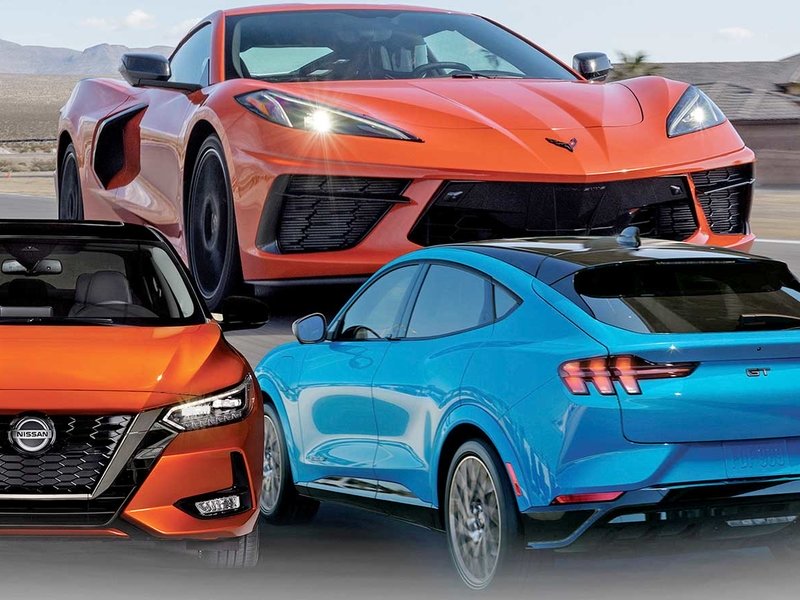
The coronavirus epidemic hasn’t just slammed the brakes on the economy — it’s also upending some critical new-model launches.
Automakers are having to rethink the carefully orchestrated go-to-market strategies for several key models.
Market launches will be impacted for the next 12 months, Tyson Jominy, vice president of the Power Information Network at J.D. Power, told Automotive News.
“We have this incredible mismatch of vehicle supply to demand,” Jominy said. “It’s going to take some time for that to balance out.”
Last week, electric-vehicle startup Polestar announced the start of production in Luqiao, China, of its Polestar 2 electric fastback, a model the company has been waiting for to substantiate the young brand and take on Tesla’s Model 3.
Polestar USA CEO Gregor Hembrough told Automotive News by email that the company is still planning to begin U.S. deliveries of the car in midsummer. An associated issue, he pointed out: The pandemic could prevent Polestar’s new U.S. stores from opening on time.
For Volkswagen, the pandemic has blown up plans to launch one new crossover and a freshened version of one of its top sellers.
VW had begun a national advertising campaign for its new two-row Atlas Cross Sport crossover. The slightly smaller version of its popular three-row Atlas began arriving in U.S. dealerships this month. The freshened version of the Atlas was due in showrooms in late April and early May.
Production of both vehicles came to a screeching halt midmonth when Volkswagen issued temporary production stops at its U.S. assembly plant in Chattanooga to combat the spread of the virus.
U.S. dealerships at its sibling brand Audi, meanwhile, were supposed to receive their first orders of the e-tron sportback battery-electric vehicle, the RS6 and RS7 as well as an RS version of the Q8 crossover this summer. It’s unclear whether those launches will be impacted.
Toyota was ready to launch the redesigned 2020 Sienna minivan. There has been no determination where and when it will happen.
The industry shutdown also threatens a product offensive at financially embattled Nissan. A cornerstone of the rollout: the 2020 Sentra, which is attempting to reawaken retail enthusiasm for its compact cars. Nissan has halted production at its Aguascalientes, Mexico, assembly plant.
“New products are going to be critical” to turn the business around, David Kershaw, Nissan division vice president of sales and regional operations, said earlier this year.The new Sentra has been “flying off the lots” since it went on sale in late January, Nissan spokesman Brian Brockman said.
The launch was supported with a more youthful, product-focused TV ad campaign featuring Brie Larson.
That has now been put on hold.
In the meantime, Nissan is shifting much of its advertising to “more customer-support messaging,” Brockman said. The new advertising focuses on payment relief and discounted rates for current and new customers.
The Sentra is among the least-expensive compact cars on the market and key to finding new buyers for the brand, said Sam Fiorani, vice president at AutoForecast Solutions.
“The market downturn hit at exactly the wrong time for Nissan as entry-level buyers will find alternatives to new-car purchases when their near-term financials are in question,” Fiorani said.
Models entering the retail channel “really have the wind knocked out of ’em,” Jominy said. “You have all the marketing lined up, and all of a sudden we’re dealing with unprecedented demand fall-off.”
The market disruption is likely to complicate one of the most hyped launches of the year.
Production of the midengine 2020 Chevrolet Corvette, already delayed by last year’s UAW strike against General Motors, began Feb. 3.
The Corvette, named the 2020 North American Car of the Year, has received more than 45,000 preorders through its website since the car was unveiled in July. Dealer demand is five times what GM has allocated, Steve Majoros, Chevy’s U.S. vice president of marketing, told Automotive News in late February.
A tanking stock market and recession have likely turned off the demand spigot for $60,000-and-up sports cars.
“Toys like the Corvette are always very market sensitive,” Fiorani said. “Buyers who can afford a specialty car such as this will be far less likely to splurge when their investments have suddenly taken a hard hit.”
A GM spokesman said last week that three freshened 2021 Chevrolet models are now delayed due to the crisis: the Equinox, Traverse and Bolt EV. Those programs will now shift to the 2022 model year.
The schedule disruption could even blow Ford Motor Co. off course on its Mustang Mach-E, the automaker’s first battery-electric crossover and a symbol of what the company wants to be.
The vehicle is expected to hit full production in Mexico in August, according to forecasters. A spokeswoman could not say whether launch plans were still on target, telling Automotive News last week only that “teams are looking at every program.”
Larry P. Vellequette, Michael Martinez and Hannah Lutz contributed to this report.